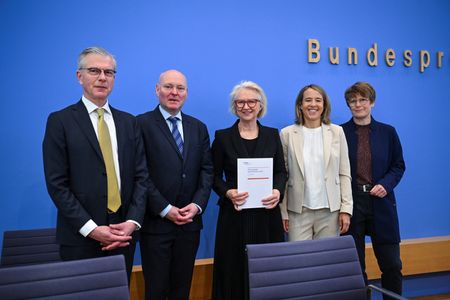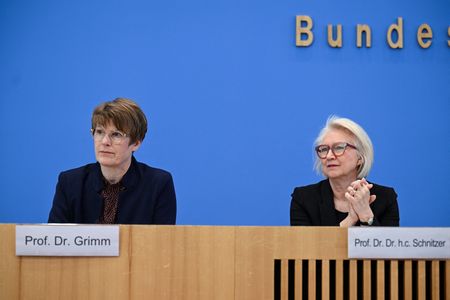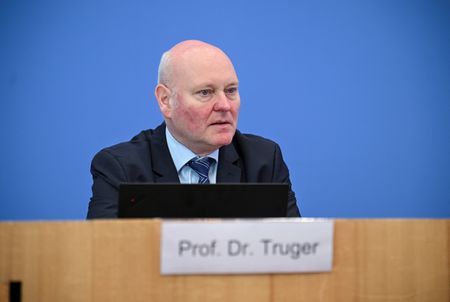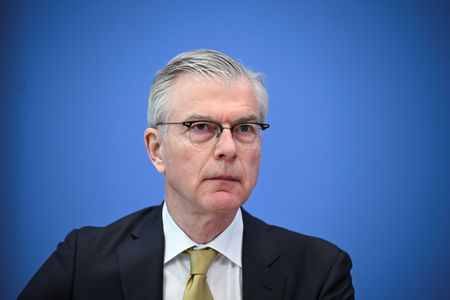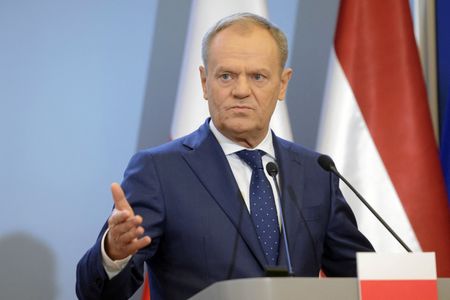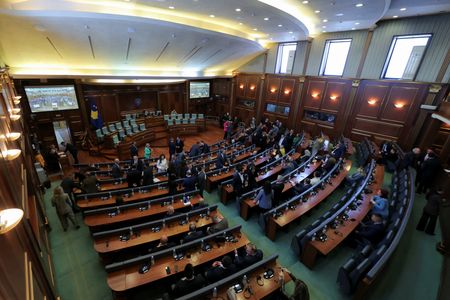By Maria Martinez
BERLIN (Reuters) -The German Council of Economic Experts cut its forecast for Europe’s largest economy on Wednesday, now expecting it to stagnate this year during a “pronounced phase of weakness”.
The academic body that advises the German government on economic policy had predicted the economy would grow 0.4% this year in previous forecasts published in November.
Germany has been the only member of the G7 advanced economies that failed to grow for the last two years, burdened by fiscal restraints and an industrial downturn.
“The unfavourable effects of the overall economic weakness phase on the labour market continue,” Veronika Grimm, a member of the council, told a press conference in Berlin.
The number of unemployed people in Germany is approaching the 3 million mark for the first time over the last 10 years.
The tariffs announced by U.S. President Donald Trump are expected to deal a major blow to its export-oriented economy.
“The German economy will be significantly influenced by two factors in the near future: U.S. tariff policy and the fiscal package,” Monika Schnitzer, chairwoman of the council, said in a council statement on its forecast.
The U.S. was Germany’s biggest trading partner in 2024, with two-way goods trade totalling 253 billion euros ($284 billion).
“Even if it does indeed happen that tariffs are reduced, that Trump succeeds with his ‘deal economy’ and countries simply trade and the tariffs are not that high, he has managed to introduce enormous uncertainty into the system,” Ulrike Malmendier, another council member, told the press conference.
DELAYED GROWTH BOOST
On the bright side, Germany approved in March a fiscal plan that includes a 500-billion-euro special fund for infrastructure investments, and largely removes defence investment from rules that cap borrowing. The fiscal package offers opportunities to return to a growth path, economists say.
“The effects of the financial package won’t be noticed immediately and that’s why this growth boost will only occur next year – it takes time,” Schnitzer told reporters.
Starting in 2026, the new funds should spur investment in construction and equipment as well as government spending, the council said, forecasting 1.0% growth next year.
Schnitzer emphasised the need for swift approval and implementation to facilitate rapid spending. “For this, we first need a budget to clarify who will spend the money, when, and how,” she said.
Germany’s new finance minister has begun intensive preparations for the 2025 and 2026 budgets.
The council report said private consumption is also expected to grow somewhat stronger in 2026 compared to 2025, as disposable incomes will increase more significantly in real terms.
However, the savings rate will only decline slightly, and due to uncertainty the council said it remains questionable whether consumption will significantly boost the economy.
The council forecast inflation at 2.1% this year and at 2.0% next year, going “in the right direction”, although it said it was unclear whether the current trade conflicts would drive inflation up or dampen it.
“Additionally, expansive fiscal policy in Germany could raise inflation expectations and thus favour a tighter monetary policy by the European Central Bank,” Grimm said.
($1 = 0.8898 euros)
(Reporting by Maria Martinez; editing by Kirsti Knolle and Mark Heinrich)

